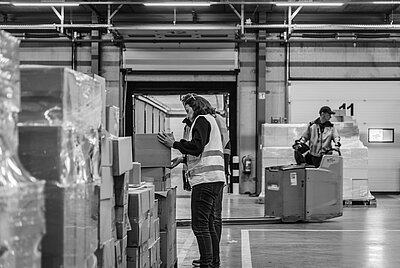Place real value on your sustainability
A recent survey by McKinsey & Company shows that 40% of businesses are using sustainability programmes with purpose and intent, to generate new business. Embedding real change within the fashion industry is becoming a hot topic and done right, it can also have a huge impact on the bottom line.
We’ve seen brands like Nike and Adidas creating sustainable ranges and investing in sustainable material development but without any true directive to do so legally, which is commendable, since sustainability typically makes up a very small percentage of many fashion retailers’ sales and production.
Greenwashing, greenhushing and green marketing are all terms that have emerged for businesses that are portraying a greener image but they are beginning to open a chasm for retailers between what they say and what they do.
Some fashion brands are choosing to hold themselves accountable for ultimate transparency with customers, shareholders and investors. In September 2020, French luxury fashion house, Chanel, issued €600 million of bonds with a sustainable catch. If Chanel fails to meet its ESG targets, then it will pay penalties to investors in addition to bond maturity payments.
This is a smart approach to sustainability within the fashion industry. Not only does it help to encourage accountability for the brand to reach their goals, but also helps to attract investors with similar attitudes to sustainability. Success is no longer simply about profit.
For fashion retailers, this approach could help to create transparency along with taking a hard line on reducing global emissions – of which it is responsible for 8-10%.
Embedding sustainability within all product ranges and business operations is imperative for fashion retailers in 2023 and beyond.
Gain growth with better sales
As Mark points out; “Businesses traditionally see growth as more sales, rather than better sales. The challenge now is how to make more money selling less stuff.”
But what do “better sales” look like within the fashion retail world?
Without doubt, high sustainability products make a huge difference to generating better sales. With around 20,000 bottles of water needed to make just one pair of jeans, investing in sustainable ranges and production can have a huge impact on your carbon footprint.
Many consumer surveys highlight that people are more and more willing to pay a premium for products that are sustainable. But with over-consumption in fashion also highlighted as a huge problem, this presents a conundrum for many fashion retailers. How do you encourage customers to spend money when you really need to them to buy less?
The Swap Shop in Amsterdam is a new model of fashion retailer that encourages customers to take in their old clothes, in exchange for ‘swaps’ – points that can be redeemed against purchases in-store. They only sell previously used items, and customers can use their ‘swaps’ for a discount of up to 50% on items, ensuring a steady revenue stream to grow the brand.
The Swap Shop is a good example of better sales for fashion retailers – focussing on the lifecycle of items and keeping them in use for longer, rather than simply the environmental impact of production.
Switch up your business model
For forward-thinking fashion retailers, looking to create revenue while reducing environmental impact, then clothes rental provides an opportunity for re-thinking how you can make sales.
Recent research from Finland shows that this approach requires careful consideration to ensure that the benefits from reduced clothing production aren’t outweighed by an increase in delivery journeys.
Again, it’s important to look at your entire model from top to bottom to ensure that the approach you adopt is a sound choice that considers the entire lifecycle of a garment.
There are lots of clothing rental brands emerging including HURR and Estonian-based The Rewear Company, specialising in children’s clothing rental. And with the average number of wears per item of clothing continuing to shrink, it’s more important than ever for fashion retailers to consider an alternative to new purchases.
German-based MyOnbelle is a fashion rental subscription service – meaning guaranteed monthly income for the retailer and sustainable choices for their customers. It has truly taken the “better sales” outlook to heart – offering a new business model for fashion retailers looking to incorporate a sustainable approach from top to bottom.
Taking sustainability seriously in fashion retail is a way to create dramatic shifts in your environmental impact and to influence customer decisions towards better choices for retailers, consumers and the planet. By offering a green product line and where possible, using green Goods Not For Resale (GNFR), you’re ticking all the right boxes.
If you’re ready to switch up your sustainable approach, then speak to our team on +31 (0) 88 494 20 80 or email us at online@worldpack.eu


